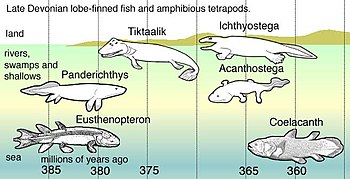phoenix1
Well-known member
Thanks for the responses. A lot of interesting stuff and if I have more time I would like to individually respond. I would like to respond with a couple points though.
Quixote,
I agree with what you are saying. I think though that in the past when people believed in the many gods of nature who had their motivations and cruelty, there were still elements of anxiety control for the masses. For example, you could perhaps sacrifice an animal or a child into the water as an appeasement for that particular god of the water. In doing so, you would convince yourself that you pleased that particular god and that now that god will give you better weather and not drown you out in the sea. There were always rituals and sacrifices in order to believe that your particular god is taking care of you. To help limit the overall anxiety of uncertainty.
Around the 4 and 5th century AD in Europe - Christianity was taking root in the main cities while the pagan religions still flourished in the countryside. Progression always starts when diverse ideas and peoples are forced together in large cities. Christianity beat the pagan beliefs and took root and then eventually spread to everyone else. I say this, because there’s a parallel to this day and age. I think its fascinating that now atheism is getting more and more mainstream in the bigger cities, just like Christianity was - And with the onset of the internet, the world is becoming one big city in itself too. Its interesting because perhaps its the first time in human history that much of the world population is trending towards self reliance and uncertainty in the larger scope of things.
Dealing with uncertainty is always such a difficult question, that’s why I originally posed it. If it was easy, then I assume there would never have been a need for religion to begin with.
I do like the idea of love as posted. Maybe it’s the bond between family and fellow humans that will replace the need for the religion. The comradeship that we are all together for whatever reason or lack of reason and that we do our best to take care of each other in this strange existence. To strive to make life better for everyone because that is what would make us feel better too if people did that for us as well.
To know perhaps that when uncertainty comes and we feel overwhelmed - We don’t need to look to the skies, but to the next room, to your neighbor, to your country, to your world. The people of this world will be there and guide you and love you. We could live and die in each others arms and then uncertainly wouldn’t be so bad.
Yes, I’m a sentimental fool sometimes.
Quixote,
I agree with what you are saying. I think though that in the past when people believed in the many gods of nature who had their motivations and cruelty, there were still elements of anxiety control for the masses. For example, you could perhaps sacrifice an animal or a child into the water as an appeasement for that particular god of the water. In doing so, you would convince yourself that you pleased that particular god and that now that god will give you better weather and not drown you out in the sea. There were always rituals and sacrifices in order to believe that your particular god is taking care of you. To help limit the overall anxiety of uncertainty.
Around the 4 and 5th century AD in Europe - Christianity was taking root in the main cities while the pagan religions still flourished in the countryside. Progression always starts when diverse ideas and peoples are forced together in large cities. Christianity beat the pagan beliefs and took root and then eventually spread to everyone else. I say this, because there’s a parallel to this day and age. I think its fascinating that now atheism is getting more and more mainstream in the bigger cities, just like Christianity was - And with the onset of the internet, the world is becoming one big city in itself too. Its interesting because perhaps its the first time in human history that much of the world population is trending towards self reliance and uncertainty in the larger scope of things.
Dealing with uncertainty is always such a difficult question, that’s why I originally posed it. If it was easy, then I assume there would never have been a need for religion to begin with.
I do like the idea of love as posted. Maybe it’s the bond between family and fellow humans that will replace the need for the religion. The comradeship that we are all together for whatever reason or lack of reason and that we do our best to take care of each other in this strange existence. To strive to make life better for everyone because that is what would make us feel better too if people did that for us as well.
To know perhaps that when uncertainty comes and we feel overwhelmed - We don’t need to look to the skies, but to the next room, to your neighbor, to your country, to your world. The people of this world will be there and guide you and love you. We could live and die in each others arms and then uncertainly wouldn’t be so bad.
Yes, I’m a sentimental fool sometimes.

